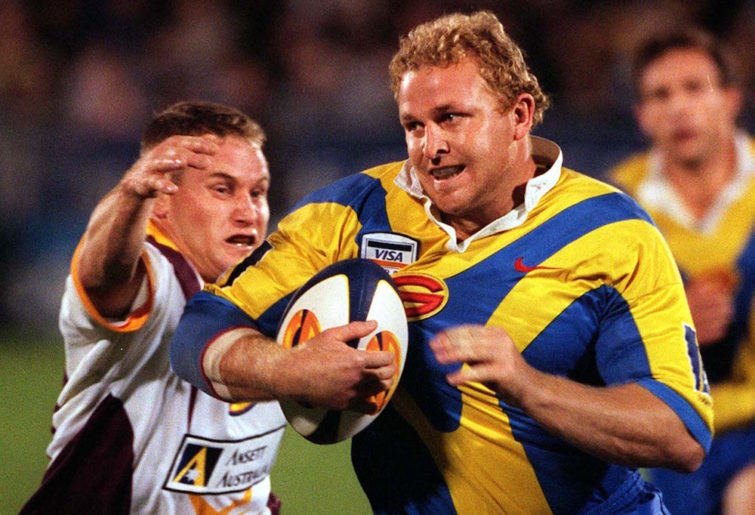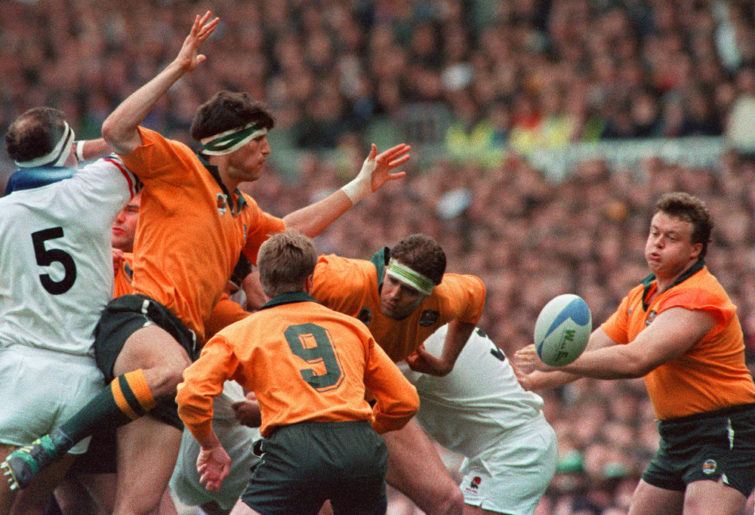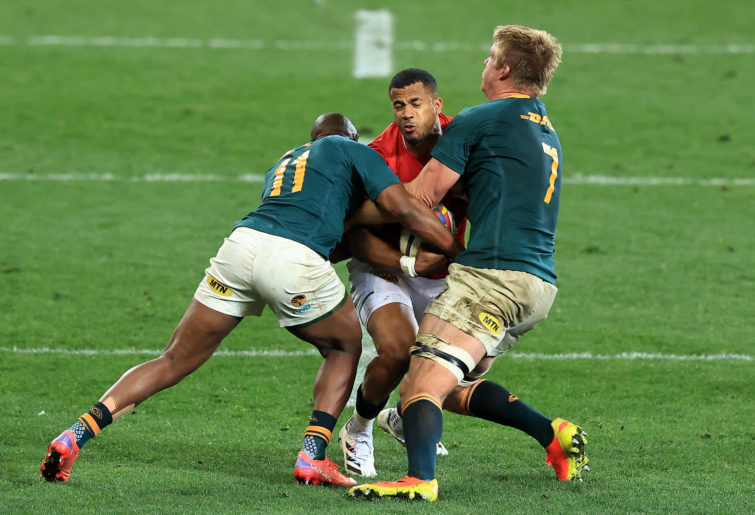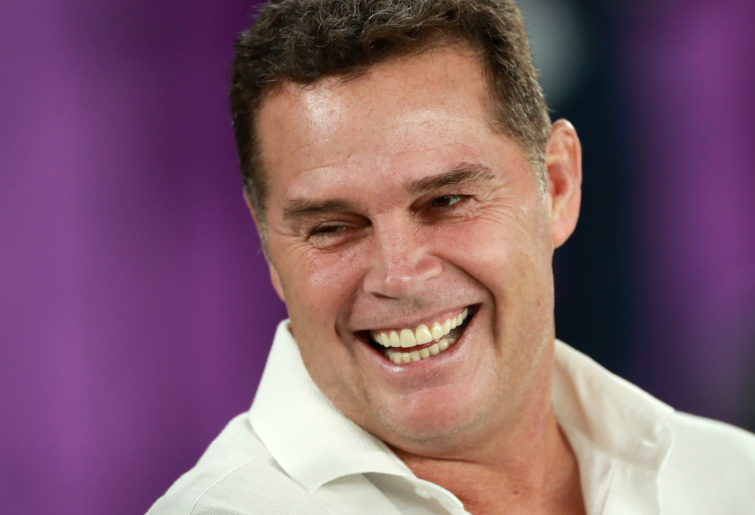As money flowed into sport codes the drive to become more professional began as to which stage of the professional evolution, and finances, determined the codes’ resources and support staff.
Support staff too have become full-time professionals dedicated solely, in most teams, to the success of their club or team. This professionalism also led to the development of the field of sports psychology in the early 1900s.
Coleman Griffith is considered the founder of sport psychology, as the first researcher to specialise in the area. He taught a course called ‘Psychology and Athletics’, and in 1925, opened the first research lab specialising in sport psychology topics.
But it wasn’t until the late 1960s that sport psychology began to emerge as an independent field of study. The International Society of Sport Psychology (ISSP) was founded, and the International Journal of Sport Psychology was created soon after.
America is the home of professional sports. It has a long history of embracing sport professionalism and also has a long history of embracing psychological care and support.
Unlike most nations with an Anglo history of stiff upper lip and soldiering on, they felt no stigma in getting psychological help.
This is probably why they’ve been using sports psychologists since the 1980s.
Obviously there have been great coaches who have utilised techniques from the field to get results, but usually the funds and philosophical view have not been there to the concept.
Focusing on the rugby codes, we can see the 1990s were where the professionalisation of the game has its foundation.
While rugby union has only been professional in Australia since 1995, league has been professional since 1908. That is, players were paid above the table for playing, and some received payments under the table.
But essentially, they were paid to play, being the definition of professional as opposed to being a close alignment to professionalism.
Although players were professional, most still had to work full- or part-time to support themselves, while also fulfilling their training and playing duties as part of contractual obligations.
We are currently seeing this same evolution in women’s sports, but the time frame is shorter.
The 1990s were a super decade for the rugby codes. 1995 brought about rugby professionalism and 1997 brought about the Super League War.
These events meant that players, coaches and staff could now become full-time professionals.

(Photo by Phil Walter/Getty Images)
Creating the race to become the best in your code led to an improvement of skills, a demand for innovation and a pushing of boundaries. It was mostly positive, but in a few cases it was causing scandals and a negative impact on the game.
Player skill levels and coaching innovation has seen the greatest impact of professionalisation of the codes.
This constant need to innovate saw industrious coaches search the world for best practices and ideas to gain an edge on the competition.
This has been crucial in creating success and gaining the much needed life blood of professional sport, corporate money.
Innovation and self-examination ultimately led to the embracing of sports psychologists and most recently, mind coaches and coach whisperers. The latter two are not necessarily qualified psychologists, but just glorified motivational speakers. One of my favourites, Denis Waitley, probably falls into that category.
Although most professional teams do not disclose the use of sports psychologists, we can see their influence in interviews with players and coaches.
There are things mentioned like ‘looking inside myself’ and ‘visualisation of my performance’, players wearing headphones to help get in the zone before games, or most recently, coaches and players refusing to mention an opposition by name or calling them New Zealand instead of the All Blacks.
For every good there is bad, every yin there is yang, debit there is a credit, so too with professionalism.
Professionalism has given us a game with bigger, faster, stronger and more skilled athletes and a game that does not exactly resemble the game of yesteryear.
It has also given the players and coaches much more pressure to succeed, and more free time than at any other time in its history.
When the game was semi-professional and amateur, most players had a job or career while they played.

(PASCAL PAVANI/AFP/Getty Images)
When not training or playing, they worked. This helped players mix with the community, develop life skills and develop mental toughness. To fit this all in required commitment, dedications, organisations and most of all, mental resilience to get it all done.
By being part of the community and getting feedback from your colleagues on Monday morning, it helped ground players and allowed them to understand their role in the community.
Players also tended to play for their team’s community, because they lived with and in the community.
The advent of professionalism, and in particular the use of sports psychology, has also had the yin-and-yang effect. Players now have the tools, self-belief, money, time and resources to achieve consistent results.
Unfortunately, they live in a bubble that self-perpetuates and reinforces those beliefs. They no longer need another job and only tend to mix with the community during team-sanctioned events.
This often creates a disparity between the community and players.
Another key difference between past players and current players is social media. It’s now with you wherever you go.
Because today’s players tend to be living in a bubble and are now career athletes, they tend to be aloof from the realities of the every day person’s life.
Their timetables are planned. So are meals, training, and commitments. Everything is laid out for them, and all they have to do is focus on training and recovery and follow the plans.
It is why, similar to military people, some professional athletes have trouble adjusting to life outside of the bubble.

(Photo by David Rogers/Getty Images)
Because professional sport is about getting players to perform on the field, the mental focus tends to be solely on their role within the game.
More focus needs to be building up resilience and mental toughness and facing adversity rather then sport performance. You see this is not the case in some teams and players when they give up mid-match.
What we have seen in professional sport recently is the use of psychological deflection, mostly by coaches.
Deflection, by definition, is a method of changing the course of an object, an emotion, or thought from its original source. Psychological deflection is seen as a narcissistic abuse tactic used to control the mind and emotions of others.
Nevertheless, psychological deflection is not only a narcissistic tool but also a coping mechanism strategy.
Individuals who use it seek to mask their own impulses by denying their mistakes and projecting them on the people around them – mostly onto the referee, some other official and in some cases even the coach themselves.
In a coaching capacity it is used to take the pressure off the players, and usually put it onto the officials. Wayne Bennett, Ricky Stuart, Michael Cheika and others have been known to use this tactic.
Some are more successful than others. But what is alarming is the increasing use of this nature technique.
Previously, this was done in after-match comments and the occasional lead-up interview generally sticking within the confines of questioning 50-50 decisions.
But not anymore. Rassie Erasmus has changed that.

(Photo by David Rogers/Getty Images)
During an hour-long video release he has taken it beyond 50-50 decisions to questioning the character of the referee and even inferring something much more sinister.
My only hope is that this is nipped in the bud by World Rugby and a stern example is set, because if not sport will not survive this sort of escalating behaviour.
I understand professional sport is ruthless, but there is something refreshing hearing a coach say ‘while we may not have got the 50-50s at the end of the day we weren’t good enough and have to be better next time’.
It doesn’t take 62 minutes to say that.
I’m all for innovation and I enjoy watching the results of professionalisation of sport. Sometimes though the past has gems hidden in it that can benefit the future.
It is good to see a greater awareness of mental health issues, but the focus, like most health issues, appears to be on treatment rather than prevention. All people, not just professional athletes, need to develop and build resilience.
It is essential in sport but it is vital in life.
































































































